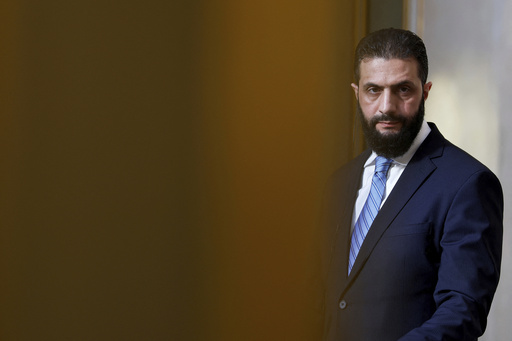In a significant policy move on Monday, President Donald Trump implemented an executive order that concludes numerous U.S. economic sanctions on Syria, adhering to a commitment he had made to the country’s newly appointed interim leader.
The announcement, made by White House press secretary Karoline Leavitt, highlighted the intent behind the decision: to “promote and support the country’s path to stability and peace.”
This executive order aims to reintegrate Syria into the global financial network, establishing conditions conducive to international trade and attracting investments from neighboring countries and the United States, as explained by Brad Smith, Treasury’s acting undersecretary for terrorism and financial intelligence, during a press briefing on Monday.
Despite the lifting of several sanctions, those imposed on former President Bashar Assad, his close associates, family members, and officials involved in human rights abuses, drug trafficking, or Syria’s chemical weapons program remain intact.
Additionally, sanctions approved by Congress, notably the Caesar Act, that target entities involved with Syria’s military, intelligence, or dubious institutions, are still in place. Although the Trump administration has issued temporary waivers, a permanent repeal of these sanctions requires legislative action.
The text of the executive order was shared on X after the signing, which was not open to media coverage.
In a departure from previous policies, the United States extended extensive exemptions from sanctions to Syria in May, marking an initial move toward President Trump’s ambition to dismantle over fifty years of economic sanctions on a nation devastated by over a decade of civil conflict.
Accompanying the economic relief measures, the executive order also nullifies a national emergency from an executive order instituted by former President George W. Bush, addressing Syria’s occupation of Lebanon and endeavors concerning weapons of mass destruction and missile programs. Additionally, five other executive orders related to Syria have been revoked.
However, sanctions aimed at terrorist organizations and the producers and distributors of Captagon, an amphetamine-type stimulant, remain enforced.
The decision follows President Trump’s meeting in May with Syria’s interim leader, Ahmed al-Sharaa, in Saudi Arabia, where discussions centered on lifting sanctions and potentially normalizing diplomatic relations, marking a dramatic shift in U.S.-Syria relations.
“This is another promise made and promise kept,” stated Leavitt regarding the executive order.
In a parallel gesture, the European Union has also proceeded to remove nearly all remaining sanctions against Syria.
Nonetheless, certain restrictions persist. The United States continues to classify Syria as a state sponsor of terrorism and categorizes the faction headed by al-Sharaa as a foreign terrorist entity.
The State Department is reportedly evaluating these classifications, according to an official representative.
Home Trump Lifts US Sanctions on Syria with Executive Order


